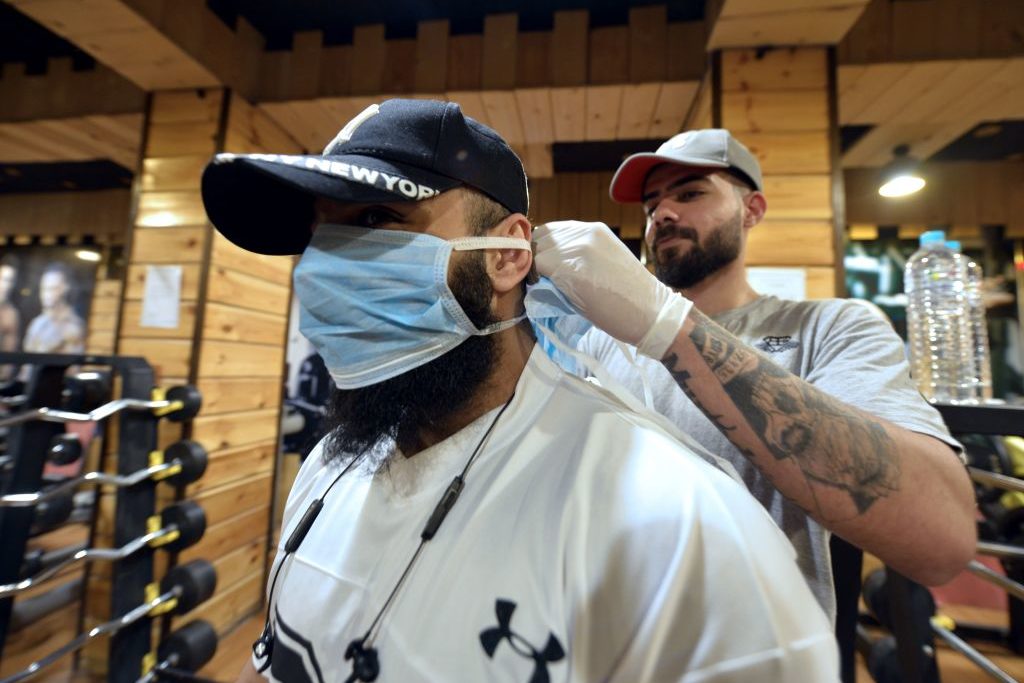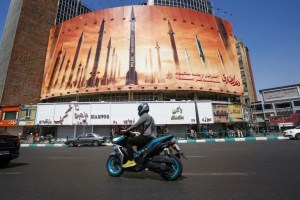In a roundabout way, coronavirus may have been responsible for the deaths of two American service personnel and a British soldier in a rocket attack in Iraq on Wednesday. This triggered a prompt US military retaliation — American forces launched strikes at five sites in the early hours of this morning — and the prospect now is of an escalation while the rest of the world is consumed with a global health crisis.
What’s going on? It was Gen. Qasem Soleimani’s birthday on Wednesday and a Shiite militia — probably Kataib Hezbollah — chose to mark the occasion by firing Katusha rockets at Camp Taji, the US base just north of Baghdad. This was delayed revenge for the US missile strike in January that killed Soleimani, who, as commander of Iran’s Quds Force, ultimately ran Kataib Hezbollah and other Iraqi Shia militias. Why now? One answer is that the Iranian leadership is in chaos because of coronavirus and so the Shia militias in Iraq are off the leash.
US military commanders think that’s a possibility. The chairman of the Joint Chiefs of Staff, Gen. Mark Milley, was asked why the attack had taken place. He replied: ‘There could be a lot of reasons, it could be coronavirus, it could be rogue Shia militia groups, it could be Soleimani’s birthday, it could be a lot of things.’ The general in charge of US forces in the Middle East, Kenneth McKenzie, said the coronavirus outbreak in Iran was far worse than the regime was admitting and the crisis was ‘having an effect on how they make decisions’. He went on: ‘Their inability to effectively respond to the coronavirus is I think inducing pressure on and inside the leadership…I think it probably makes them, in terms of decision making, more dangerous rather than less dangerous.’
Could it be that the mullahs are themselves trying to provoke a new confrontation with the Great Satan to distract from their handling of the virus? I doubt it. They took only symbolic action against American military targets in January, when Soleimani was killed, knowing that pushing President Trump too far might lead to a war that would end the regime. Acting on the assumption that Trump is too busy dealing with his own coronavirus crisis to retaliate now would be an extraordinary gamble. Though ruthless, the mullahs have always been rational — and the basic calculus of regime survival has not changed. It seems unlikely that they are playing Iraqi roulette.
But whether the Iraqi Shia militias are fully under Tehran’s control is another matter. It’s true that they get arms and money from Tehran, and answer to the Iranian general who replaced Soleimani. But they are, first and foremost, Iraqis and they have promised to fight to get rid of the American ‘occupier’ in Iraq. They have the support of many Iraqis — the democratically elected Iraqi parliament has voted to tell the Americans to leave.
This morning’s US airstrikes in retaliation for Wednesday’s attack were aimed at Kataib Hezbollah ‘weapons storage facilities’. In response, another Iranian backed militia warned that it might ramp up its own attacks on US forces. That militia, Harakat al-Nujaba, accused the US of hitting an Iraqi army headquarters and a civilian airport. Any further strikes, it said, would lead to an ‘eye for an eye.’
The risk is that Shia militias in Iraq escalate the conflict with the US while Tehran is simply distracted; then the US and Iran make a fatal miscalculation. Coronavirus has probably not improved the quality of decision making in either Washington or Tehran: the Persian Gulf remains as dangerous as ever.


















